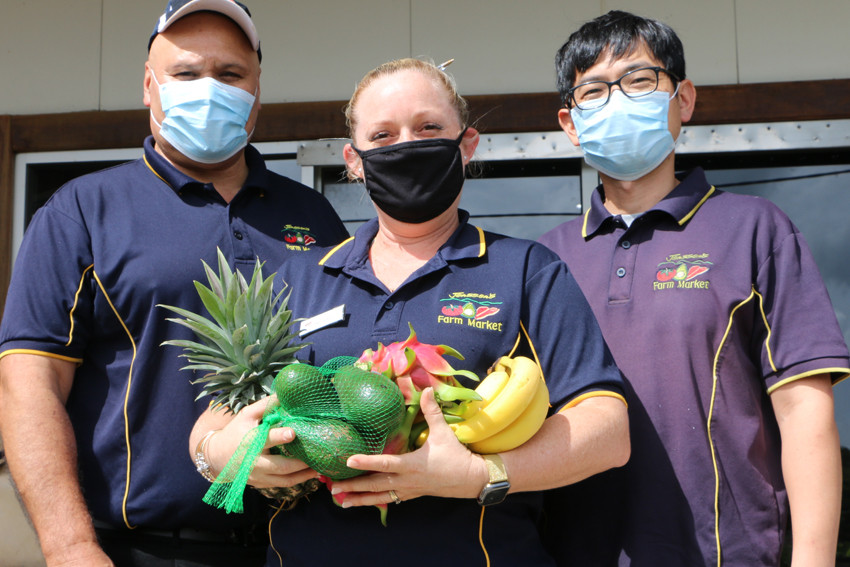General News
1 April, 2021
Swap and Save a Job
The FNQ economy can be supercharged simply by swapping large national grocery chains for independent butchers and green groceries.

Locals have the power to propel the region’s economy forward simply by buying local as it is revealed fresh fruit, vegetables and meat accounted for more than 50 percent of the weekly grocery bill.
Research released by Canstar Blue late last year revealed the average weekly grocery spend for a household of four was $181.
Analysis of further recent research, by Budget Direct, showed meat accounted 27 percent of groceries purchased with vegetables and fruit coming in at 14 percent and 11 percent respectively.
In dollar terms, this equals just under $90 per week that experts say has a multiplier effect on the regional economy when spent with local businesses instead of multi-national companies like Woolworths and Coles.
The weekly shopping list for an average family of 4

Leading local economist Bill Cummings said buying local impacts the region’s economy more than buying from outside the area.
“It is absolutely obvious, purchases from local suppliers will have a larger impact on the economy than if goods and services are directly imported,” Mr Cummings said.
“When goods are purchased locally, not only is there a direct impact, a “flow-on” or “multiplier” effect occurs as local employees and the business owners spend their incomes.”
Mr Cummings said when local businesses buy from each other the impact is further increased through jobs creation and the attraction of services and infrastructure.
“The local business will also purchase inputs and the degree to which they are purchased locally will set up a supply chain impact throughout the economy,” he said.
“Typically, models of the local economy indicate that for every one direct job, there will be at least one extra indirect job created and often more.
“The growth of Cairns, over time, has made it viable to have university level education facilities. The growth of number of vessels and aircraft based in the region has made a great deal of maintenance and support activity viable.”
Skills growth and retention was another benefit Mr Cummings said, helping to steel the region against metropolitan competition.
“Buy local” in many fields means important skills are retained and improved to compete against competition from metropolitan areas.” he said.
Jonsson’s Farm Market owners Warren and Gail Jonnson see the benefits of the “buy local” movement first hand in their business which employs around 65 people at its Stratford and Earlville locations.
The business also has a local supplier list in the hundreds including farmers and producers of local goods like jams, chocolates, sauces and ice-cream.
Mr Jonsson said choosing to buy locally instead of purchasing from a national chain had economic benefits beyond just supporting one business.
“My accountant tells me that for every dollar that’s spent through our business generally gets turned over nine times in the local area,” Mr Jonsson said.
However, the benefits to the consumer weren’t purely economic, Mr Jonsson said, with many locals not realising the effects of food transport on their products.
“Being a producer I knew first-hand how much produce went to Southern markets, markets in Brisbane, and came back to North Queensland,” he said.
“Obviously, the quality is not as good because the shelf life isn’t as long and because it’s been transported. Generally, the quality’s not as good either because of damage in transport.”
Mr Jonsson said local produce was “definitely fresher


